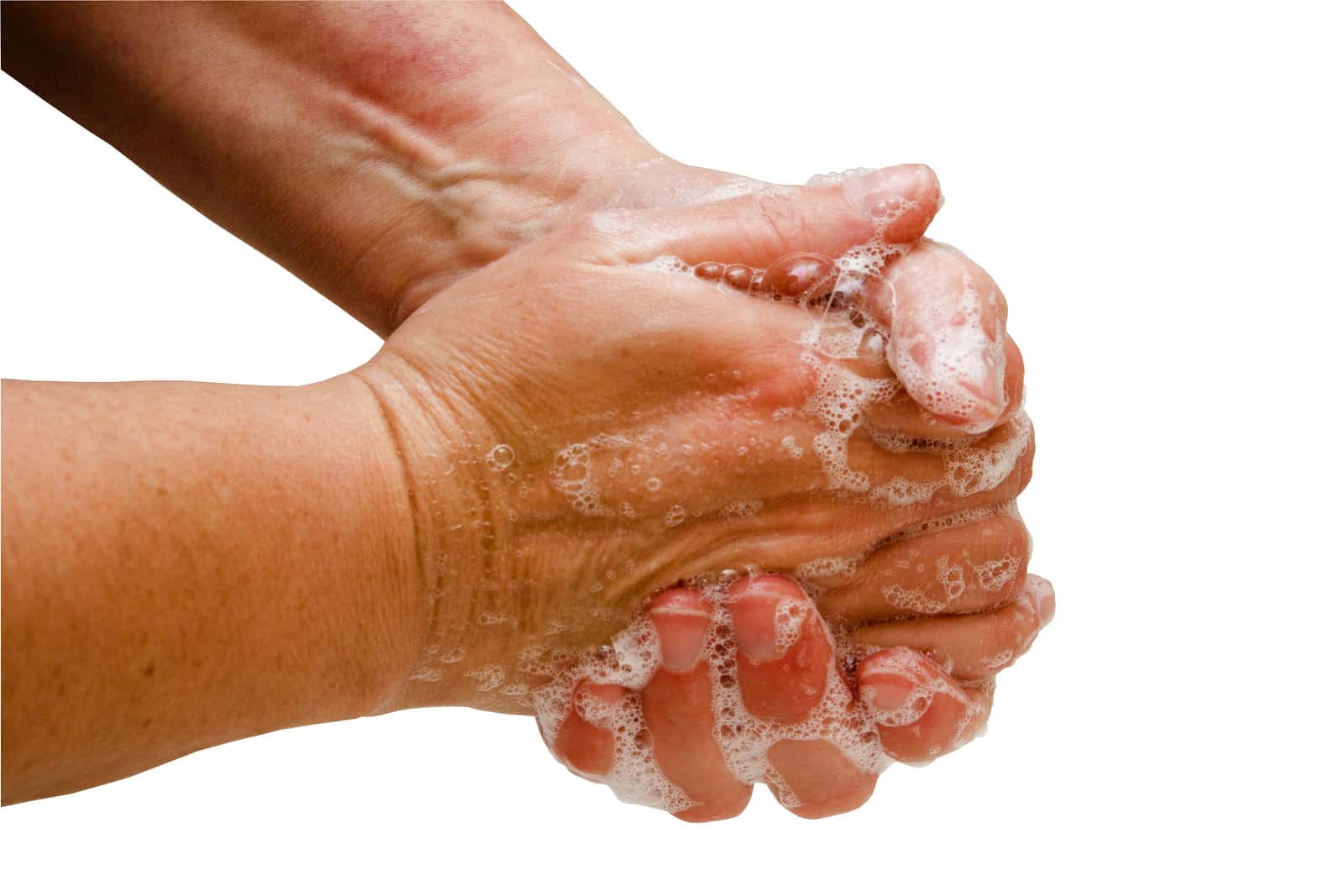
Really effective hand-washing has always been critical for helping us stay healthy, but it has never gotten more attention than it is now. People striving to avoid infection with COVID-19 must rely on social distancing and scrupulous as well as frequent hand-washing. But many other infections are also controlled by careful hand-washing.
Questions About Hand-Washing:
Q. You wrote about soap and water vs hand sanitizers recently. A friend’s mother recently got C diff, maybe from taking an antibiotic for a UTI.
When the nurse gave them directions for C-diff care, she said not to use liquid soaps, only bar soaps! Why would that be?
A. Keeping hands clean is crucial in avoiding infection. We wrote that hand sanitizer works well against bacteria. It is not as effective as soap and water against viruses (Journal of Food Protection, June 2016).
We were confused by the caution you mention about liquid hand soaps. When we checked the medical literature, however, we found a report on bacterial contamination of liquid soap in a hospital ICU (Journal of Hospital Infection, May 2016). We suspect this is less relevant at home, where people buy individual containers of liquid soap and discard them when they are empty.
C Diff Infections:
The infection your friend’s mother suffered, C diff, is caused by bacteria named Clostridioides difficile. (This species used to be called Clostridium difficile. It’s still very difficult.)
This species of intestinal microbe frequently takes advantage of a disruption of the normal ecology of the digestive tract. When an antibiotic kills off many or most of its normal denizens, C diff jumps into the open niche and starts reproducing like crazy. At low levels, C diff is an unremarkable gut organism. However, when it is present at high levels, it can cause disruptive diarrhea that is very difficult to treat.
Doctors agree that thorough hand-washing is the first and best line of defense against spreading the infection (British Medical Bulletin, Sep. 19, 2019). They also agree that using antibiotics only when they are truly needed (“antibiotic stewardship”) is crucial. Unfortunately, they are not all on the same page when it comes to treating this potentially dangerous diarrhea. So, wash your hands! That will help protect you against influenza and COVID-19 as well as bacteria.
How to Wash Your Hands:
You probably learned how to wash your hands in kindergarten, like everything else you really need to know. But there have been a few refinements on hand-washing technique lately, like making sure you scrub for at least 20 seconds, long enough to sing the Happy Birthday song twice. (The ABC song might also work, if you don’t rush through it at top speed.)
Here is a video demonstration on how to wash from WHO.
Alcohol-based hand sanitizers may be better at killing viruses than antibacterial soap (Journal of Hospital Infection, Dec. 2012). On the other hand, you don’t need to kill viruses at home, just get them off your hands and down the drain. For that, you don’t need antimicrobial soap, either. Plain old soap and water should do the job just fine. Make sure to wash your hands after using the bathroom, after sneezing or coughing (into a disposable tissue, please, that you then throw out), before fixing food or eating, before touching your eyes, nose or mouth and after handling anything that somebody else has touched.
Citations
- Foddai AC et al, "Efficacy of instant hand sanitizers against foodborne pathogens compared with hand washing with soap and water in food preparation settings: A systematic review." Journal of Food Protection, June 2016. DOI: 10.4315/0362-028X.JFP-15-492
- Blanc DS et al, "Hand soap contamination by Pseudomonas aeruginosa in a tertiary care hospital: No evidence of impact on patients." Journal of Hospital Infection, May 2016. DOI: 10.1016/j.jhin.2016.02.010
- Mahida YR, "New concepts in C. difficile management." British Medical Bulletin, Sep. 19, 2019). DOI: 10.1093/bmb/ldz029
- Steinmann J et al, "Comparison of virucidal activity of alcohol-based hand sanitizers versus antimicrobial hand soaps in vitro and in vivo." Journal of Hospital Infection, Dec. 2012. DOI: 10.1016/j.jhin.2012.08.005

